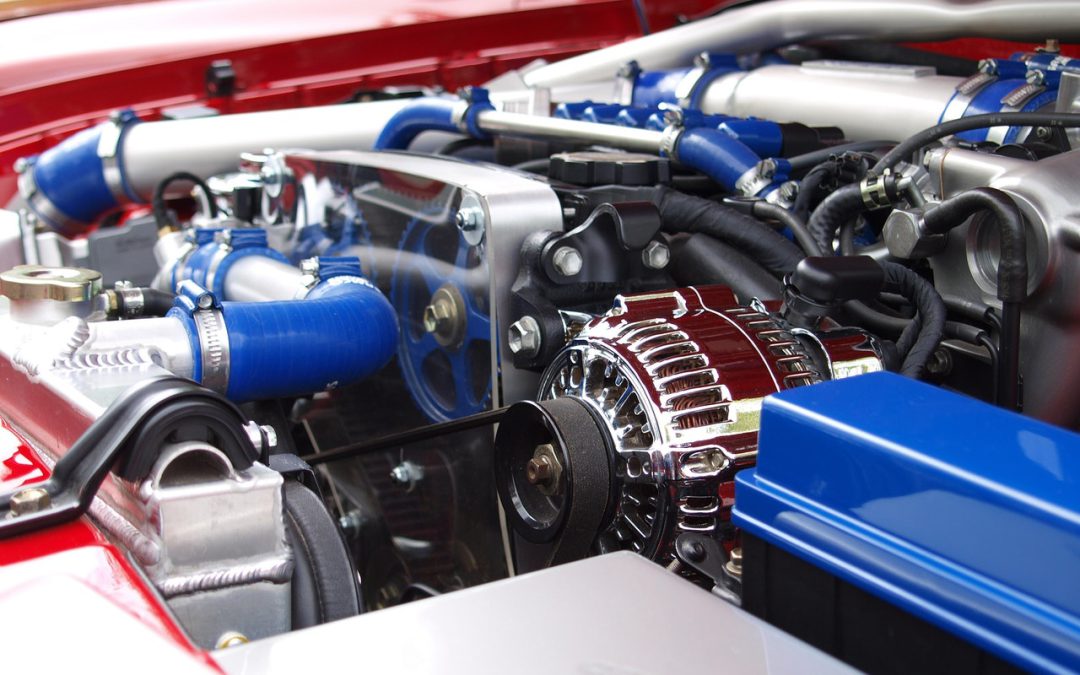Car alternator failure can be a major headache for drivers, leading to unexpected breakdowns and costly repairs. Understanding the top causes of alternator issues is crucial for maintaining your vehicle’s health and avoiding inconvenient situations on the road. By being aware of these common culprits, you can take proactive steps to prevent alternator failure and ensure smooth driving experiences. Stay tuned as we delve into the key factors that contribute to car alternator problems and discover effective strategies to keep your vehicle running smoothly for miles to come.
Recognizing Alternator Issues
Flat Battery Signs
Check for a discharged battery as a primary sign of alternator issues. Look out for difficulty starting the car on the first try. Pay attention to the battery light on the dashboard or flashing.
Loose Belt Indications
Listen for intense noise in the transmission belt indicating a potential problem. Watch out for a burnt rubber smell due to the alternator belt rubbing against components. Regularly inspect the alternator belt condition to prevent breakdowns.
Grinding Noises
Be wary of grinding noises that may signal friction on internal moving parts. Address any unusual sounds coming from the engine area promptly. Consider high-speed rotation as a factor leading to internal component wear.
Sporadic Function Warnings
Notice dimming of headlight intensity or burnt headlights. Be cautious of oscillation in the intensity of the car’s interior lights when using other electrical components. Check for slowness when opening and closing electric windows.
Causes of Alternator Failure
Friction on Parts
Understanding how high-speed rotation gradually wears out internal components is crucial. Replacing small parts regularly can prevent failure and extend the alternator’s lifespan significantly. Being aware of the potential overload on other elements due to resistance is essential.
Short Circuit Risks
To avoid alternator failure, ensure that battery short-circuits are prevented by proper cable positioning during charging. A short circuit can cause permanent damage to the alternator, emphasizing the importance of taking precautions to prevent such incidents.
Overload Dangers
Recognizing excess consumption as a common cause of alternator overload is vital. Understanding that an overloaded alternator requires disproportionate effort to compensate for energy usage is key. Being mindful of situations where the alternator struggles to provide sufficient mechanical energy is crucial in avoiding failure.
Belt Breakdown
Learning about how the alternator belt loses elasticity over time helps in anticipating breakdowns. The risks associated with a broken belt, such as engine overheating, highlight the importance of regular maintenance. Being aware that a broken belt can lead to failures in other components like the water pump and power steering emphasizes the need for timely replacements.
Electrical Overload
Identifying damaged voltage regulators as a source of electrical overload is essential for preventing alternator failure. Using a multimeter to check for flaws in the voltage regulator helps in early detection and maintenance. Understanding the consequences of violent load transfer to electrical devices due to damaged regulators underscores the significance of regular inspections and replacements.
Preventing Alternator Problems
Regular Maintenance
Regular servicing is crucial to prevent alternator issues and ensure your car’s optimal performance. Replace components like the brushes, bearings, and diodes during maintenance checks to prolong the alternator’s lifespan. Checking the alternator belt condition every six months helps in detecting early signs of wear and tear.
Battery Management
Properly managing your car battery plays a significant role in avoiding alternator problems. The health of your battery directly impacts the performance of the alternator. Follow recommended charging practices to maintain both the battery and alternator in good condition.
Avoiding Electrical Excess
Beware of electrical excess as it can significantly contribute to alternator failure. To prevent overload, balance the electrical load by reducing unnecessary power consumption. Understand how electrical excess affects the alternator’s efficiency for better preventive measures.
Importance of Regular Maintenance
Routine Checks
Regularly inspect the alternator to catch potential issues early. Look for signs of wear like frayed belts or corrosion. Stay proactive by conducting routine checks on your vehicle to prevent unexpected breakdowns.
Professional Inspections
Seek expert help for accurate diagnosis of alternator problems. Professionals can effectively address any underlying issues. Trust the expertise of professionals to provide preventive measures and avoid future alternator failures.
Managing Your Car Battery
Proper Charging
Proper charging is crucial for maintaining your car’s alternator. Follow manufacturer guidelines for optimal charging practices. Overcharging the battery strains the alternator, leading to potential failure. Understanding the impact of improper charging is essential for longevity.
Avoiding Drainage
To avoid alternator strain, prevent battery drainage by turning off all electrical components when not in use. Leaving electronics running with the engine off can significantly drain the battery and stress the alternator. Implement strategies like turning off lights and unplugging devices to minimize power consumption.

Limiting Electrical Accessories
Identifying Necessities
Identify the essential electrical components in your vehicle to ensure proper power distribution. Understanding the impact of excessive power demands is crucial; it can strain the alternator. Prioritize critical systems to prevent overloading the alternator.
Balancing Load
Balance the electrical load across various components to avoid excessive strain on the alternator. Distribute power efficiently among different accessories to prevent overload issues. Implement load-balancing techniques to optimize the performance and longevity of your alternator.
Signs to Replace Alternator
Battery Performance
Monitor battery performance closely as it reflects the health of the alternator. The alternator relies on the battery for power. Understand that a healthy battery supports the alternator’s function and vice versa. To ensure your vehicle’s overall health, maintain optimal battery performance through regular checks.
Belt Condition
Regularly check the alternator belt condition to prevent unexpected breakdowns. A deteriorating belt poses risks to the alternator’s operation and can lead to failures. Replace the alternator belt whenever signs of wear appear to avoid potential issues down the road.
Unusual Noises
Listen for any unusual noises that could signal underlying alternator problems. Be vigilant for abnormal sounds emanating from the engine compartment, as they may indicate issues with the alternator. Promptly investigate and address any unfamiliar noises to prevent further damage.
When to Replace Alternator
Lifespan Considerations
Car alternators typically last around seven years or 100,000 miles, but this can vary. Components like the diodes and bearings may wear out sooner than the entire alternator. Regular maintenance is crucial to prolong the lifespan of these critical alternator parts.
Warning Signals
Dimming headlights, flickering dashboard lights, or a dead battery are early signs of alternator issues. Unusual noises like grinding or whining can indicate a failing alternator. Responding promptly to these warning signals can prevent costly repairs down the road.
DIY Alternator Maintenance Tips
Basic Checks
Perform basic checks regularly on the alternator and related components to ensure optimal performance. By inspecting the alternator frequently, you can detect potential issues early on. Understanding the significance of these simple inspections is crucial in preventing major problems down the line.
Take proactive measures to address minor concerns promptly. By identifying and resolving small issues early, you can avoid more significant and costly repairs in the future. Regular maintenance and basic checks are key to ensuring your alternator’s longevity.
Simple Repairs
Learn basic repair techniques for minor alternator problems to maintain your vehicle’s efficiency. Equipping yourself with knowledge on handling simple repairs can save you time and money. However, it’s essential to recognize when a problem surpasses your capabilities and seek professional help.
Understanding when to seek professional assistance is critical for more complex alternator issues. While you can handle minor repairs independently, certain problems require expertise beyond DIY solutions. Knowing the limitations of your skills will prevent further damage to your alternator.
Closing Thoughts
You now have a solid understanding of the top causes of car alternator failure and how to prevent them. By recognizing early signs, conducting regular maintenance, and managing your car battery efficiently, you can avoid costly repairs and unexpected breakdowns. Remember to limit electrical accessories and stay vigilant for any symptoms indicating a failing alternator. DIY maintenance tips can also help you keep your alternator in top condition.
Incorporate these practices into your car care routine to ensure a reliable vehicle performance. Stay proactive, address issues promptly, and prioritize alternator health to extend the lifespan of your car’s electrical system. By taking these steps, you’ll not only save money but also enjoy a smoother driving experience with fewer interruptions. Keep your alternator in check, and drive worry-free!
Frequently Asked Questions
1. What are the common signs of alternator issues?
Common signs of alternator issues include dimming headlights, strange noises, dashboard warning lights, and a dead battery. If you notice any of these signs, it’s crucial to have your alternator checked by a professional.
2. How can regular maintenance help prevent alternator problems?
Regular maintenance such as checking the belt tension and connections, inspecting for corrosion, and testing the charging system can help detect potential issues early on. This proactive approach can prevent major alternator failures and ensure your vehicle’s reliability.
3. Is DIY alternator maintenance recommended?
While basic tasks like cleaning terminals or checking belts can be done by car owners, complex alternator repairs should be left to professionals. DIY maintenance tips can help with early issue detection, but professional expertise ensures proper diagnosis and repair.
4. When should I consider replacing my alternator?
If you experience frequent electrical problems, notice burning smells, or see warning lights related to the charging system, it may be time to replace your alternator. Prompt replacement can prevent further damage to your vehicle’s electrical components.
5. How do electrical accessories impact alternator lifespan?
Excessive use of electrical accessories like high-powered sound systems or aftermarket lighting can strain the alternator. Limiting their usage when not necessary helps reduce the load on the alternator and prolong its lifespan.
Are You in Need of Professional Car Alternator Repair Services?
Experience the unparalleled expertise of autoTECH Blackhawk in the realm of car alternator repairs. Why choose autoTECH Blackhawk for your alternator repair needs? Our hallmark is our unwavering commitment to building lasting relationships with our customers, a crucial aspect in the complex domain of car electrical systems and their maintenance. This commitment is the cornerstone of our tailored service, guaranteeing that our alternator repair solutions are precisely tailored to meet your individual needs and objectives for your vehicle’s electrical performance and reliability.
Whether you’re troubleshooting a difficult alternator issue, dealing with your car’s electrical failures, ensuring the electrical system’s efficiency of your family car, or seeking expert advice on any electrical system anomalies, autoTECH Blackhawk stands as your reliable ally. We are proud of our industry-leading 3-year/36,000-mile warranty and our promise to utilize only Original Equipment and manufacturer-recommended parts, assuring your complete satisfaction with our alternator repair services. Don’t hesitate to contact our friendly team today to schedule a convenient and contactless consultation for your car’s alternator repair needs!


